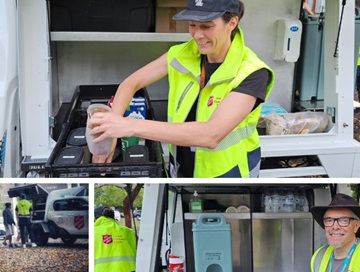As a property investor, it's essential to understand the requirements for declaring rental income and keeping accurate records for tax purposes.
With tax time just around the corner, REIWA have compiled the below guide to help you effectively manage your rental property income and expenses, ensuring compliance and optimising your investment returns.
What income do I have to declare?
When preparing your tax return, you must declare all rental income received from your property, including income from overseas properties. This includes:
- Renting part or all of your home: Income from renting out a room or the entire property.
- Short-term rentals: Income from holiday homes or other short-term rental arrangements.
- Non-commercial arrangements: Income from renting to family and friends at below market rates.
In addition to rental income, you must also report rental-related income. This includes:
- Rental bond returns: Income received if a tenant defaults on rent or causes damage to your property.
- Insurance payouts: Payments received to compensate for damage to your property.
- Tenant payments for repairs: Any amount a tenant pays to cover the cost of repairs.
- Letting and booking fees: Fees received for letting or booking services.
What records do I need to keep?
To simplify the process of completing your tax return, keep the following records:
- Loan documents
- Receipts for expenses (including repairs, maintenance, insurance, and purchases of depreciating assets).
Note: For more information on what deductions you can claim, read the article on reiwa.com. - Land tax assessments
- Credit card records
- Tenant leases
- Bank statements
- Rent records from managing agents
It is important to keep records of both income and expenses related to your rental property. Key details to include are:
- Supplier's name
- Expense amount
- Nature of goods or services
- Date the expense was incurred
- Date of the document
Note: If a document does not show the payment date, use independent evidence, such as a bank statement, to confirm when the expense was incurred.
By keeping digital records (you can open a folder in your email inbox or utilise the Australian Tax Office, or ATO app for paper receipts), you won’t be surprising yourself at tax time when you find an old paper receipt has faded.
These records must be in English or be readily translatable into English.
How long do I keep my records for?
You are required to maintain your rental income and expense records for five years from 31 October, or if you lodge your tax return later, for five years from the date of lodgement.
While you don’t need to send your records in with your tax return, it’s best to retain them in case the ATO requests to see them.
If you are in a dispute with the ATO regarding your rental property at the end of this period, keep the relevant records until the dispute is resolved.
How do I calculate my net income or loss?
To determine your net income or loss, utilise the ATO rental property worksheet. This tool can help ensure that you accurately calculate and report your rental income and expenses.





.tmb-rcarousel.jpg?sfvrsn=d38b03f0_1)
.tmb-rcarousel.jpg?sfvrsn=b4b9111_1)



